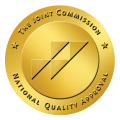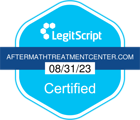
At Aftermath Treatment Center in Massachusetts, we’re here to offer hope and effective treatment to those fighting heroin addiction. Our approach marks the start of your journey to a brighter, drug-free future.
Heroin addiction is tough to beat. It needs expert care, lots of compassion, and a plan made just for you. Aftermath Treatment Center has different programs to fit everyone’s unique needs. We use proven methods and understand the mental side of addiction, making sure everyone gets the support and understanding they need to recover.
Our welcoming facility at Aftermath has trained professionals who provide therapy, ensuring every patient gets the best care that suits them.
Once admitted to a medical detox facility, you will be under proper medical supervision on an inpatient basis. There are several options for medication to help with the heroin detox process.
A detox facility can provide multiple options, such as a long-acting benzodiazepine like Ativan or Librium. They could also offer a medical taper with other opioids, such as methadone or buprenorphine (Suboxone).
You can read more about the heroin detox process on our recovery blog. Upon completion of detox, the next step would be admission to a heroin abuse treatment program.
Leaving heroin behind is hard, but it’s a big part of getting better. Withdrawal can feel different for everyone – it might be physically or emotionally tough, and cravings are common. After you detox medically, we’re here to help with any lasting withdrawal symptoms.
It’s important to spot heroin addiction early. At Aftermath, we teach you all about these signs so you know when someone needs help.
Understanding heroin addiction signs is key to helping someone. It affects both the mind and body in many ways. At Aftermath, we teach patients and their families what to watch for, making sure help comes early and effectively.
These mind-related symptoms can affect someone’s life and relationships. Our therapy at Aftermath is all about helping with these mental and emotional issues, leading to mental healing and stability.
Physical symptoms are often easier to see, and they usually make loved ones want to get help.
Knowing what a heroin overdose looks like can save lives. At Aftermath, we teach you these signs and why quick action is essential.
A heroin overdose is an emergency. Signs include breathing problems, confusion, and passing out. Acting fast and calling emergency services is crucial.
Heroin addiction is hazardous for your health. At Aftermath, we stress these dangers to show why getting help matters. Learn more about the risks of heroin addiction.
Using heroin for a long time can lead to serious health problems like heart and lung issues, mental health troubles, and a higher chance of overdosing. Understanding these risks is crucial in comprehending the importance of seeking treatment.
At Aftermath, our programs focus on overcoming addiction and teaching patients about the risks of using heroin. This education is vital to our treatment approach, helping patients understand the need for change and maintaining long-term sobriety.
It can be hard to see heroin addiction in someone. At Aftermath, we help you to spot these signs and figure out how to handle the situation.
Noticing heroin addiction signs in a loved one is often the first step to helping them. Addiction can be hidden and lonely, making it hard to identify. But there are signs to look out for:
At Aftermath, we know it’s tough to talk to someone you think is dealing with heroin addiction. We offer advice and support for families and friends on how to discuss addiction and urge them to seek treatment.
Helping someone with heroin addiction starts with knowing where to go for help. At Aftermath Treatment Center, we have resources and support to guide you on the recovery path.
If you think someone you know is battling heroin addiction, the first step is to ask for help. At Aftermath, we have many resources and support services to help families and friends.
Our team can provide guidance on how to have a conversation about addiction and treatment. We also provide information about the various treatment options available at our center, ensuring that each individual receives the care that best suits their needs.

Reaching out to Aftermath Treatment Center for help is a brave and vital step. We offer treatment plans made for each person.
Contacting a rehab place like Aftermath is a big part of recovery. Our center is a safe and supportive space where people can focus on getting better, away from daily life’s distractions and triggers.
We have programs that deal with all sides of heroin addiction – both the physical need and the deeper psychological factors. We offer different therapies, like one-on-one counseling, group therapy, and family therapy, for a complete recovery approach.
At Aftermath, we also know how key aftercare is to stay sober in the long run. Our aftercare programs offer ongoing support and resources to help people handle life after treatment, lowering the chance of returning to old habits and ensuring successful recovery.




607 North Avenue Suite 11E,
Wakefield MA 01880
© 2022 Aftermath Addiction Treatment Center. All Rights Reserved.